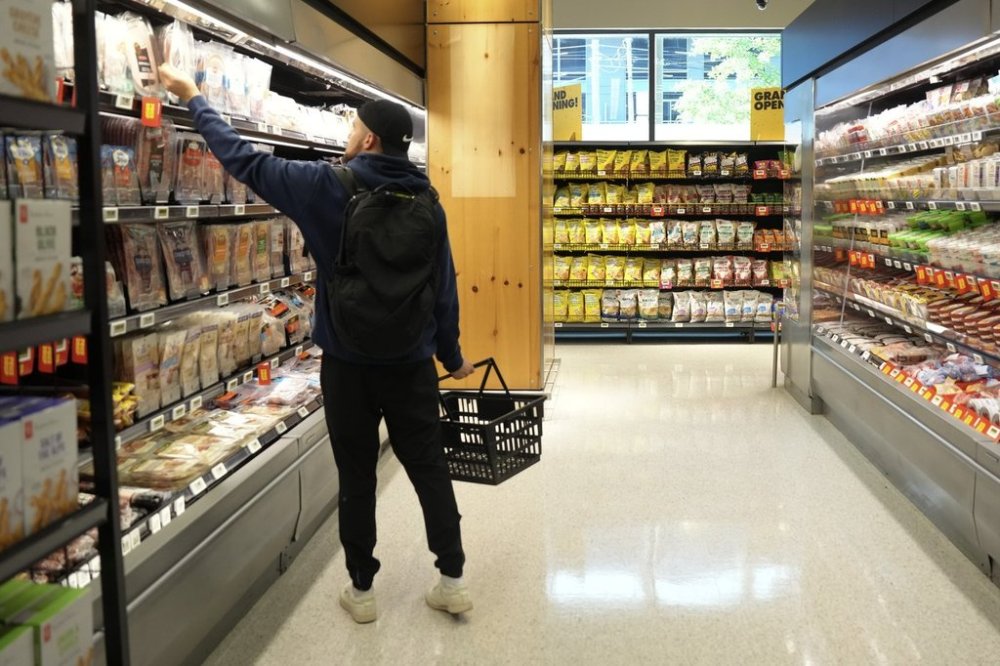Loblaw to roll out ‘tariff’ symbols on products seeing higher prices due to trade war
Advertisement
Read this article for free:
or
Already have an account? Log in here »
To continue reading, please subscribe:
Monthly Digital Subscription
$0 for the first 4 weeks*
- Enjoy unlimited reading on winnipegfreepress.com
- Read the E-Edition, our digital replica newspaper
- Access News Break, our award-winning app
- Play interactive puzzles
*No charge for 4 weeks then price increases to the regular rate of $19.00 plus GST every four weeks. Offer available to new and qualified returning subscribers only. Cancel any time.
Monthly Digital Subscription
$4.75/week*
- Enjoy unlimited reading on winnipegfreepress.com
- Read the E-Edition, our digital replica newspaper
- Access News Break, our award-winning app
- Play interactive puzzles
*Billed as $19 plus GST every four weeks. Cancel any time.
To continue reading, please subscribe:
Add Free Press access to your Brandon Sun subscription for only an additional
$1 for the first 4 weeks*
*Your next subscription payment will increase by $1.00 and you will be charged $16.99 plus GST for four weeks. After four weeks, your payment will increase to $23.99 plus GST every four weeks.
Read unlimited articles for free today:
or
Already have an account? Log in here »
Hey there, time traveller!
This article was published 10/03/2025 (261 days ago), so information in it may no longer be current.
As grocers increasingly highlight Canadian products amid a trade war with the U.S., Loblaw is rolling out new symbols alongside prices that include an indication that a product’s price has been affected by retaliatory tariffs.
Customers could notice the changes as early as next week, said spokeswoman Catherine Thomas.
After U.S. President Donald Trump enacted tariffs on Canadian goods last week, Ottawa introduced tariffs of its own on a wide swath of goods coming from south of the border.

Loblaw’s “tariff” symbol consists of a letter T inside a white triangle over a grey box.
CEO Per Bank said in a LinkedIn post Monday that Canadians shouldn’t expect to see prices in stores rise right away because of tariffs.
“As you would expect, we have inventory of U.S. products in our distribution centres, which we purchased before the tariffs went into effect. That means the pricing of many products will not be impacted until we sell what we already have on hand,” he wrote.
“But tariffs will eventually impact prices for certain products we sell – and that could come within a week or two for some items, such as fresh produce.”
For other products, Loblaw expects price increases to show up on store shelves in about six weeks, the company said on its website.
Bank said the new symbol, which Loblaw is testing across its store network, will show customers which products are sourced from the U.S. and are increasing in price because of tariffs.
“Customers can be assured that when tariffs come off, any tariff pricing changes will be entirely removed,” he said.
Loblaw is also adding maple leaf symbols to products that were prepared in Canada with domestic and/or imported ingredients, said Thomas.
She said products prepared in Canada may also see cost increases if any of their ingredients are sourced from the U.S., while changing commodity prices and the weak Canadian dollar are also factors.
If a package says “Product of Canada” or “Made in Canada,” even more aspects of the product are domestic, she said.
Loblaw previously said it’s working to replace some of its U.S.-sourced products from Canada or other countries to avoid the effects of tariffs. Other grocers have made similar comments and have also been rolling out programs to highlight Canadian products in their stores.
However, Canada is particularly reliant on the U.S. for some items, in particular fresh produce during the winter months, making those more difficult to replace.
This report by The Canadian Press was first published March 10, 2025.
Companies in this story: (TSX:L)


